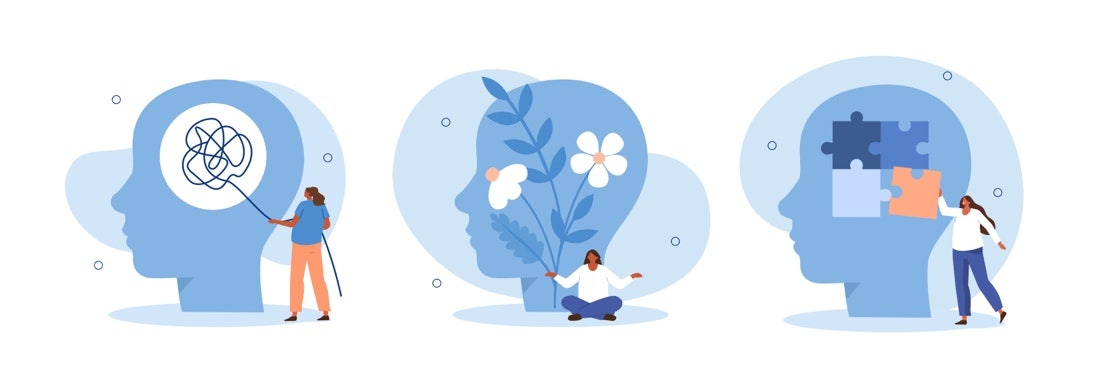Comprehensive Inpatient Mental Health And Wellness Providers for Effective Therapy
Inpatient psychological health and wellness solutions represent an important element of the health care system, giving a extensive and organized atmosphere for individuals experiencing extreme emotional distress. Exploring the nuances of this continuum discloses significant effects for both specific healing and wider mental health end results.
Comprehending Inpatient Mental Health Services
Inpatient psychological health solutions supply critical assistance for individuals experiencing extreme emotional distress that can not be managed successfully in an outpatient setting. These solutions are developed to use an intensive degree of care in a structured setting, usually within a healthcare facility or specialized facility. Individuals admitted to inpatient programs normally display severe signs, such as self-destructive ideation, serious clinical depression, or psychosis, demanding continuous monitoring and treatment.
The admission procedure generally includes a detailed assessment by psychological wellness professionals, who review the individual's frame of mind, background, and immediate requirements. As soon as admitted, people take part in a range of healing techniques tailored to their specific needs, including medication administration, specific therapy, and group sessions. This alternative strategy intends to support the individual's condition, promote safety and security, and foster coping skills.
Inpatient psychological wellness services not just address instant wellness worries however additionally work as a bridge to ongoing treatment. By providing a regulated setting, these solutions facilitate the advancement of therapy strategies that can be proceeded in outpatient settings, hence guaranteeing a continuum of care and boosting long-term end results for people with intricate mental wellness requirements.
Trick Elements of Effective Treatment
Reliable therapy in inpatient mental health services consists of several key components that promote healing and stablizing. A detailed analysis is necessary to identify the person's certain requirements and difficulties. This assessment notifies the development of a customized treatment plan, which works as a roadmap for intervention.
Another vital element is the multidisciplinary team method. Partnership amongst psychoanalysts, psycho therapists, nurses, and social employees makes certain that different point of views add to the person's treatment, boosting the efficiency of therapy. Evidence-based therapeutic methods, such as cognitive-behavioral therapy (CBT) and dialectical actions therapy (DBT), are additionally important, supplying structured techniques that resolve maladaptive idea patterns and behavioral concerns.
-(1).jpg?v=1722502701)
Finally, a concentrate on aftercare planning is important to make sure a smooth shift to outpatient solutions, minimizing the risk of relapse and promoting long-term wellness. These collective elements produce an efficient therapy structure within inpatient mental health and wellness services.
Benefits of Comprehensive Treatment

Thorough treatment in inpatient mental health services provides many benefits that considerably enhance client end results. Among the main advantages is the alternative approach to therapy, addressing not only the emotional symptoms yet additionally the physical, social, and emotional requirements of individuals. This complete evaluation permits tailored treatments that advertise overall well-being.
An additional advantage is the combination of multidisciplinary groups, which promotes cooperation among medical care professionals. This collective atmosphere makes certain that people get coordinated treatment, decreasing the risk of fragmented treatment and boosting communication among caretakers. Extensive care facilitates connection of services, permitting for seamless changes from inpatient to outpatient settings, which is critical for long-term healing.

Lastly, the structured environment of comprehensive inpatient care provides a image source secure area for patients to engage in restorative tasks, helping them develop dealing approaches and strength. Collectively, these advantages add to more effective treatment and improved quality of life for individuals experiencing mental wellness dilemmas.
Evidence-Based Restorative Approaches
In the world of mental health therapy, evidence-based therapeutic approaches play an essential duty in guaranteeing that people get effective and medically supported interventions. These approaches integrate the very best readily available research with professional competence and person worths, fostering a tailored therapy experience that deals with private needs.
Cognitive Behavior Treatment (CBT) is one of one of the most extensively acknowledged evidence-based approaches, concentrating on recognizing and changing unfavorable thought patterns and actions. This organized approach has actually demonstrated effectiveness in treating conditions such as anxiousness, ptsd, and depression. Dialectical Habits Treatment (DBT) is especially efficient for people with borderline individuality problem, stressing the growth of psychological regulation and social performance skills.
Furthermore, drug management is typically an indispensable part of evidence-based therapy, as psychotropic medications can minimize signs and image source symptoms and enhance total performance. Collective treatment models, which involve multidisciplinary groups, even more boost the efficiency of inpatient solutions by ensuring detailed examinations and continual monitoring.
Eventually, the assimilation of evidence-based therapeutic methods not only promotes favorable medical end results but likewise empowers patients, fostering a sense of firm and resilience in their mental health journeys.
Transitioning to Outpatient Assistance
The change from inpatient psychological wellness services to outpatient support notes a crucial stage in a patient's recuperation journey. This period requires mindful preparation and sychronisation to ensure connection of care and to minimize the threats of regression or situation. Efficient discharge planning need to begin early in the inpatient keep, involving a multidisciplinary group that includes psychiatrists, psycho therapists, registered nurses, and social workers.
Key aspects of a successful shift include the advancement of a comprehensive aftercare plan customized to the individual's details requirements. This plan ought to describe follow-up visits, medicine management, and restorative treatments, along with recognize community resources and support groups that can help with continuous recuperation.
Additionally, patient and household education and learning discover here is important during this phase. Understanding the indicators of prospective obstacles and the significance of adhering to therapy can encourage individuals and their support systems.
Normal follow-up and reassessment of the outpatient plan are important to resolve developing obstacles. By fostering a joint relationship between outpatient and inpatient companies, the possibility of continual recuperation increases, ultimately improving the person's high quality of life and decreasing the danger of readmission.

Conclusion
In summary, detailed inpatient mental health and wellness services use a vital framework for addressing severe psychological distress via a multidisciplinary strategy. Inevitably, such thorough care is important for long-term mental wellness and well-being.
The admission process generally includes a thorough assessment by mental wellness experts, that examine the person's mental state, background, and prompt demands.Effective therapy in inpatient psychological health and wellness services consists of a number of vital elements that foster recovery and stabilization.Detailed care in inpatient mental wellness solutions offers many benefits that substantially enhance patient outcomes.The change from inpatient mental health and wellness solutions to outpatient assistance marks a crucial phase in a person's recovery trip.In summary, comprehensive inpatient psychological wellness services provide an essential structure for resolving serious mental distress with a multidisciplinary strategy.